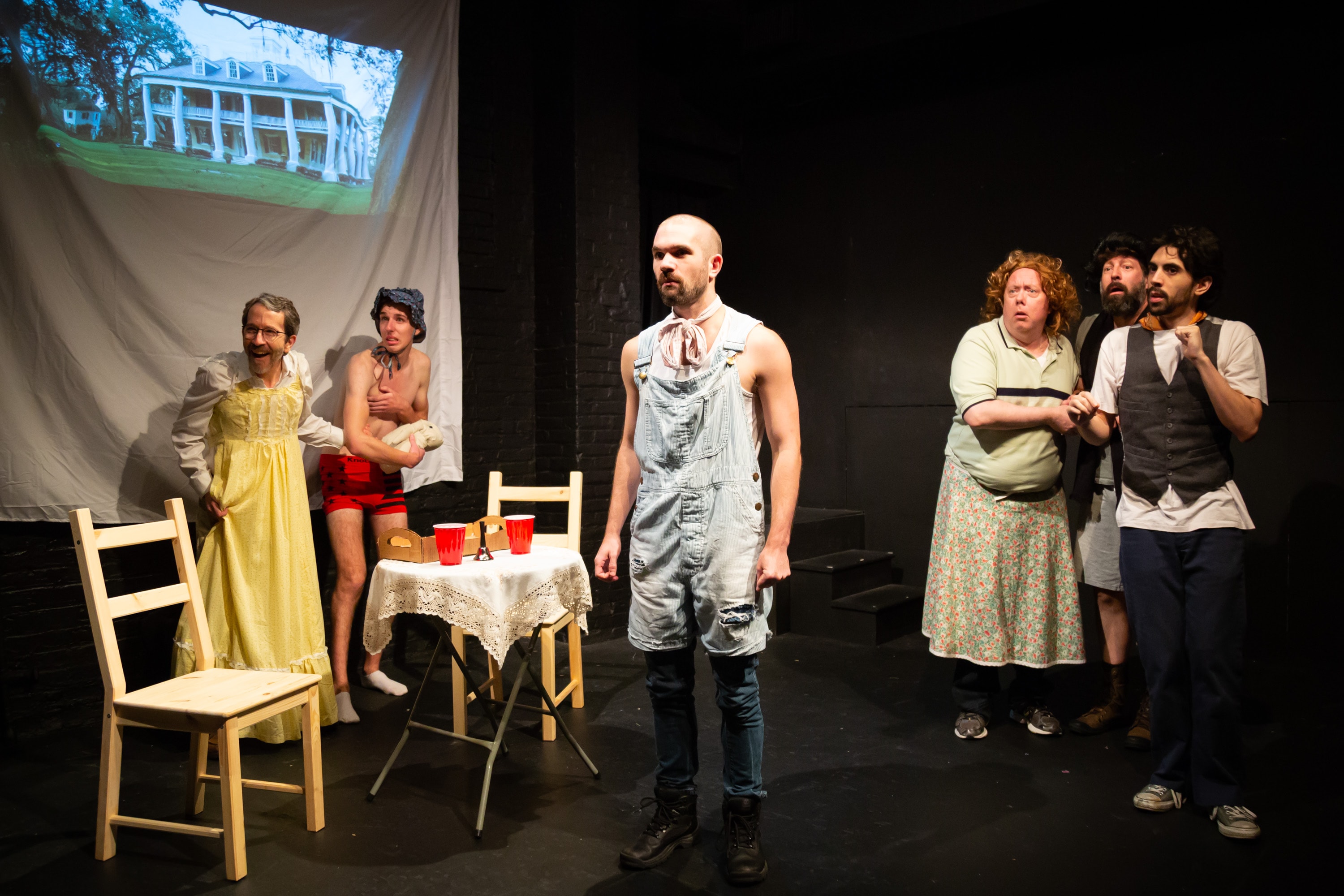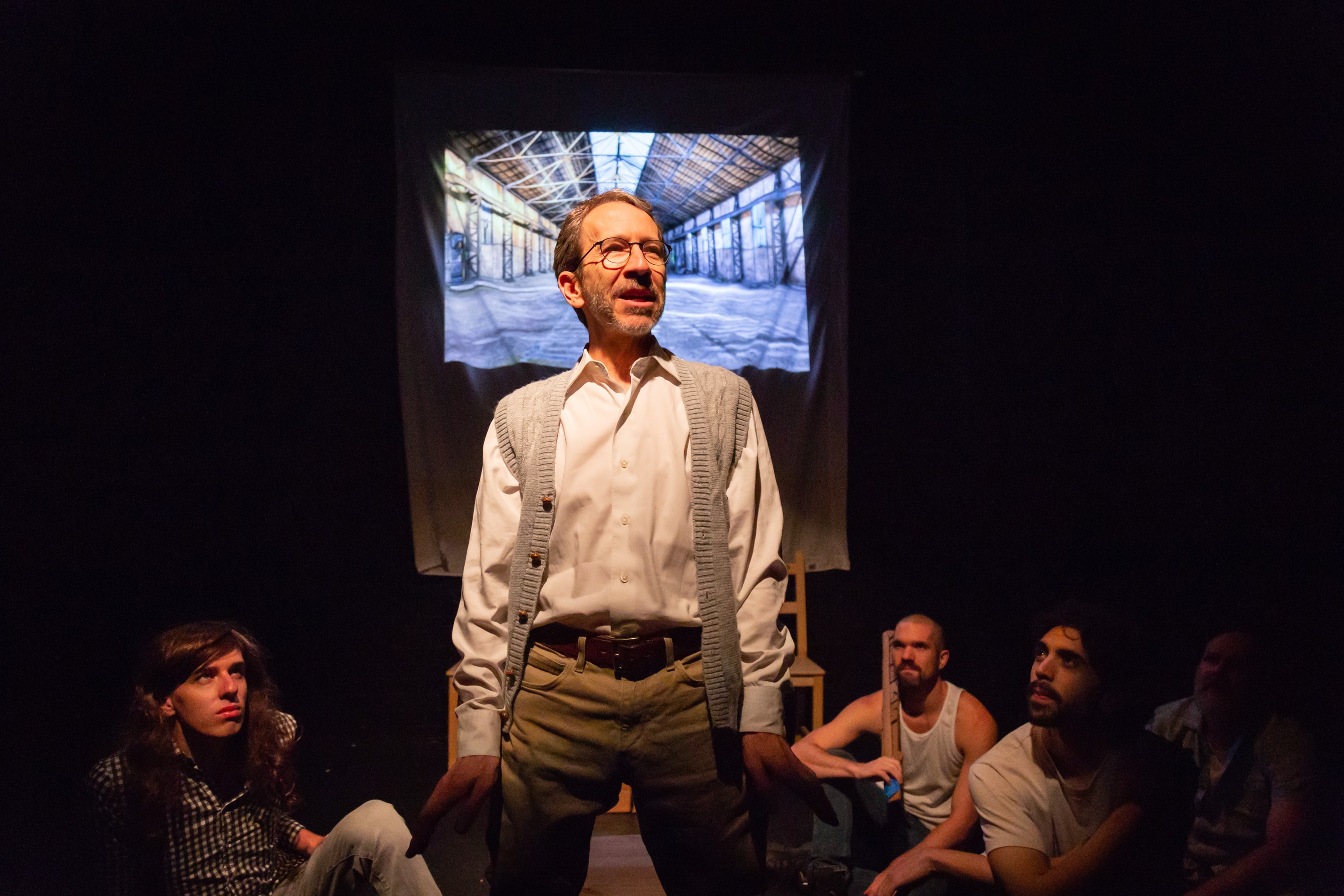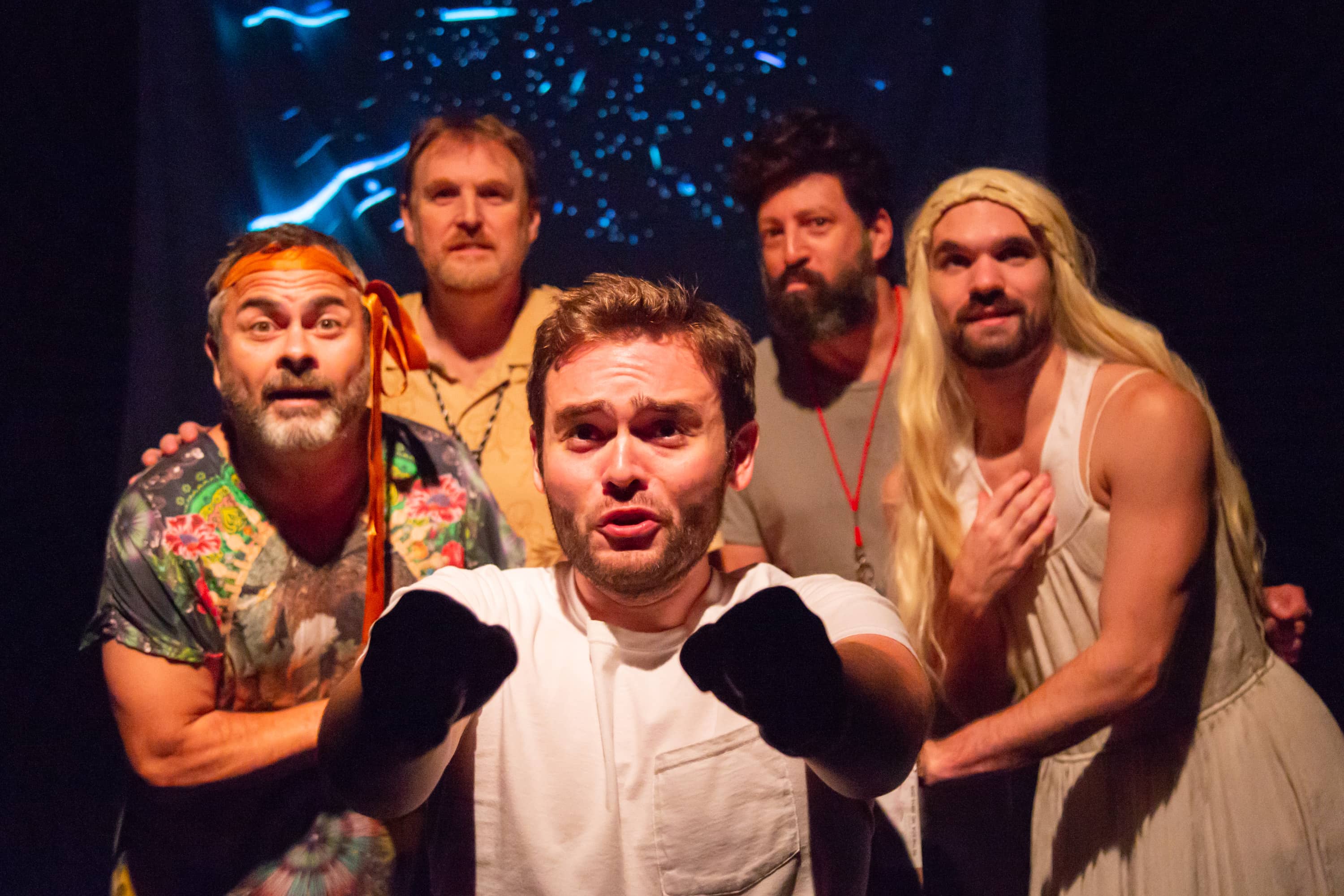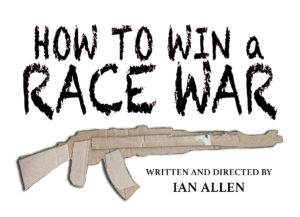I know from my feminist antipornography activism that there is plenty of misogynist hate literature around. (The hard-core stuff is brutal, sadistic propaganda marketed to men arousing them to violate women.) But despite my anti-racism activism, I was unfamiliar with the extent of so-called identitarian hate literature (propaganda marketed to whites rousing them to slaughter blacks). And then I read about the chilling research Ian Allen did for his three-part parody of the stuff, How to Win a Race War.
I remember hearing about The Turner Diaries, the book that inspired Timothy McVeigh, who perpetrated the 1995 Oklahoma City bombing. But an essay of Allen’s published in July in The New York Times, “Inside the World of Racist Science Fiction,” opened my eyes to a related canon of novels I had no idea existed. These are books, mostly self-published and in scarily wide distribution, that fuel a white-nationalist culture intent on defending white identity against the perceived threat posed by hordes of Jews and people of color. Allen summarizes the plots of several and argues that “the tropes that define the Trump administration’s rhetoric and policies—apocalyptic xenophoia, anti-Semitic conspiracies, racist fear-mongering—are also the tropes that define white-supremacist literature.” The essay left me convinced—and greatly relieved that Allen had read those execrable books so I did not have to.

While Allen cogently explains the function of this literature in contemporary alt-right politics, his explanation of the use to which he himself has put this literature is not so persuasive:
The genre ranges broadly in tone and topic, from dark, foreboding dramas to broad, slapstick comedies; from neo-Confederate romances to futuristic dystopian nightmares. They’re dangerous and disgusting, for sure, but they’re also absurdly stupid and, on the whole, very badly written. As a playwright who specializes in edgy humor, I find them endlessly fascinating. Their vocabulary of broad stereotypes, paranoid fantasies, and preposterous global-takeover schemes is the stuff comedy is made of.
Having read this essay before seeing How to Win a Race War, I went with the understanding that the show would be the proof text of Allen’s premise that comedy can be made of racist hate lit. Based on what I saw, I can report that this premise is fatally flawed.
See my colleague Karim Doumer’s insightful critque of the show.

Allen is a big thinker and smart writer with a body of work that (though I’ve only seen his play Laura Bush Killed a Guy, which I admired) has established him as one of DC theater’s premier provocateurs. I gather from his bio that as a satirist he regards little as off-limits. For instance he made a film titled Snuff.mov, described as a “bizarre slaughterfest that proceeds to blur the line between love and hate, sex and violence, humor and horror.” Which lets me know that Allen considers both misogynist propaganda and identitarian propaganda ripe for his skewering.
The three parts of How to Win a Race War take place in three epochs—during slavery (Get the Guns!), in the 1990s (Kill All Infidels!), and in a sci-fi future (Rinse and Repeat). They begin the same way: with an assortment of white-nationalist books arrayed on stage as if for sale by a street vendor. Before each play, the display is cleared away. This presumably should remind us that Allen’s fantasia on race wars in America riffs on actual source material that he doesn’t himself endorse but has processed into parody. Once the plays begin, though, that crucial frame of reference falters.

For parody to work on stage, an audience needs some familiarity with what is being parodied. We need to be in on the joke; we can’t be guessing what’s being joked about. With How to Win a Race War—unless we ourselves have read the hate literature as avidly as Allen—we have to keep inferring what his satirist’s gloss is referencing. And this puts us in the awkwardly untenable position of having to see as funny what Allen sees as funny while all the time knowing full well the source material he’s working with is hateful.
Ultimately the experience becomes an exhausting and numbing ordeal.
Upon leaving the theater the night I saw the show, audience members were offered a copy of the latest issue of Southern Poverty Law Center’s Intelligence Report, cover-lined “Confronting Hate: It’s past time to combat all the ways hate morphs into violence and crime in the U.S.” Which offered some consolation that the production’s convictions were antiracist in intent. That’s just not how it played in fact.
Running Time: Three hours and 15 minutes, including two intermissions.
How to Win a Race War plays through October 20, 2018, at the DC Arts Center – 2438 18th St NW, in Washington, DC. For tickets, call (866) 811-4111, or purchase them online.





